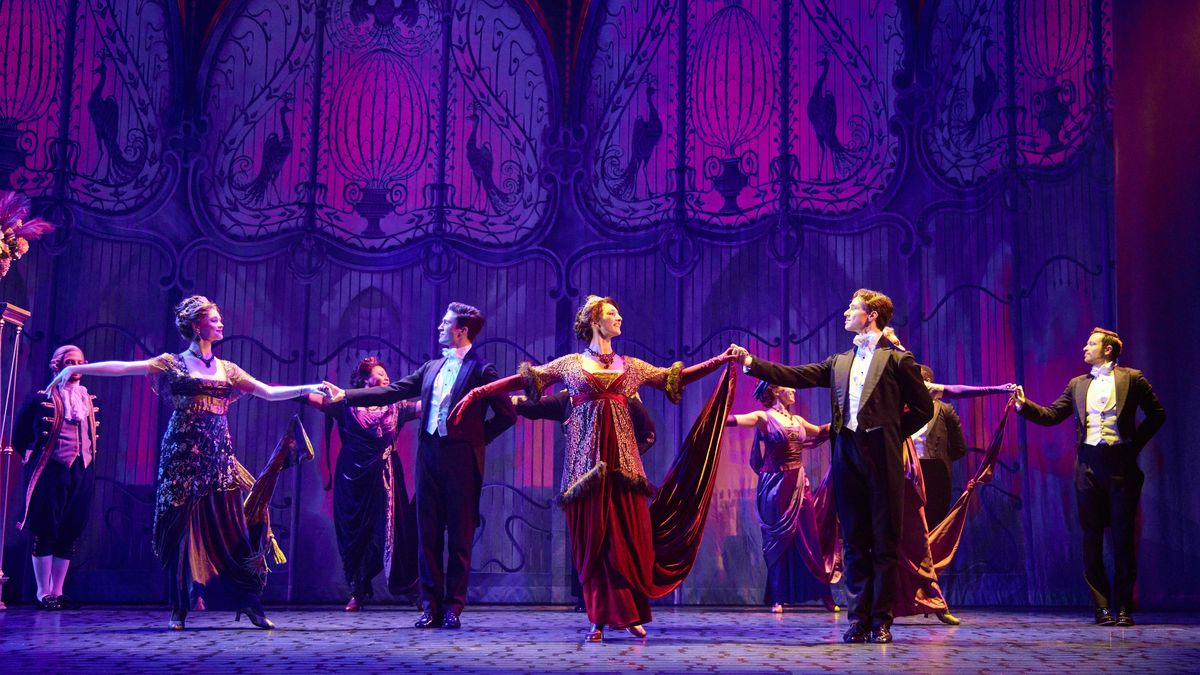Stage review: ‘My Fair Lady’ is a revival worth revisiting

“My Fair Lady” has arrived in Spokane, reminding us all why Broadway keeps reviving this 100-year-old play, (inspired by an ancient Greek legend, no less), about an impoverished guttersnipe of a girl who is plucked from the streets and transformed into a high-class woman of substance.
After Lerner and Leowe turned the 1913 popular play “Pygmalion” into an award-winning hit musical in 1956, it became the longest-running Broadway musical of its time. “My Fair Lady” further cemented itself into the American psyche when iconic movie star Audrey Hepburn starred in the 1964 film version opposite Rex Harrison, who reprised his stage role as Professor Henry Higgins.
The Lincoln Center Theater Production of Lerner & Loewe’s “My Fair Lady” running now through Sunday at Spokane’s First Interstate Center of the Arts is a delightful tribute to the classic musical.
The national touring production is teeming with talent, ready to please faithful fans and musical theater newbies with energetic, toe-tapping renditions of familiar songs that still thrill when executed with such joy and expertise.
Anette Barrios-Torres portrays the dirty-faced flower-seller Eliza Doolittle, whom the audience embraced with applause at Tuesday’s performance from the moment she stepped onstage, before she had uttered a single note. Torres’ Cockney-accented whine is wondrously contrasted when she finally lets loose with her glorious soprano and rewards the audience’s adoration with her powerful belt.
Torres sings showstoppers such as “Wouldn’t It Be Loverly?” and “I Could have Danced All Night” with seeming effortless pleasure. Her scrappy delivery of the more angry numbers, “Show Me” and “Without You” are high points, with goosebump-raising trills and a flair for acting that takes the audience along with her on her rollercoaster of emotions. Nathan Haltiwanger’s rendition of “On the Streets Where You Live” as the smitten Freddy takes the audience back to the golden age of theater when a voice and a sentiment never sounded so pretty.
Jonathan Grunert, who plays the linguistics expert Higgins tasked with training Eliza to speak correctly, deserves a shoutout for putting his own stamp on a familiar character. He is still a pompous, self-congratulating misogynist, but Grunert brings out a more innocent and physical side to his Higgins. His temper, and his own flailing body movements, seem to run away with him as he grapples with the ever-evolving female he so desperately wants to control. This tall, dashing intellectual calling for his mommy toward the end of the play is hilariously fitting.
Higgins’ companion-in-crime Colonel Pickering, is played with keen comedic timing by John Adkison, who leans into hinting at a homosexuality that chronic bachelorhood elicits. From his over-familiarity with women’s clothing to his flirtatious phone manners, it’s all done with a wink and a hug.
Michael Hegarty makes for an uproarious good time as the beer-swilling father of Eliza Doolittle who is dragged into respectability by his brush with Higgins. “Get Me to the Church On Time” is a fun high point with the members of the ensemble can-caning and cross-dressing their way through Alfred P. Doolittle’s last hours of bachelorhood. My Fair Lady’s entire supporting cast and ensemble exudes a welcome jocularity and a ready-to-giggle swagger in this over-the-top number, and throughout the show for that matter.
Another star-turn worth mentioning are the sets. The merging and transitioning from London’s gritty tenements and streets to the highfalutin Ascot races and Embassy ballroom are impeccably done. Higgins’ book-filled study is a gem of a set piece that brings to mind the scent of mahogany and cigars. Its two-stories and spiral staircase manages to dominate the stage and then recede seamlessly when needed.
The whole production is a revival worth revisiting. The production’s twists are more than enough to breathe fresh air into what could have been an all-too-familiar show. You might have “Grown Accustomed to Her Face,” but you may be surprised by your feelings at the end of Eliza’s transformation.